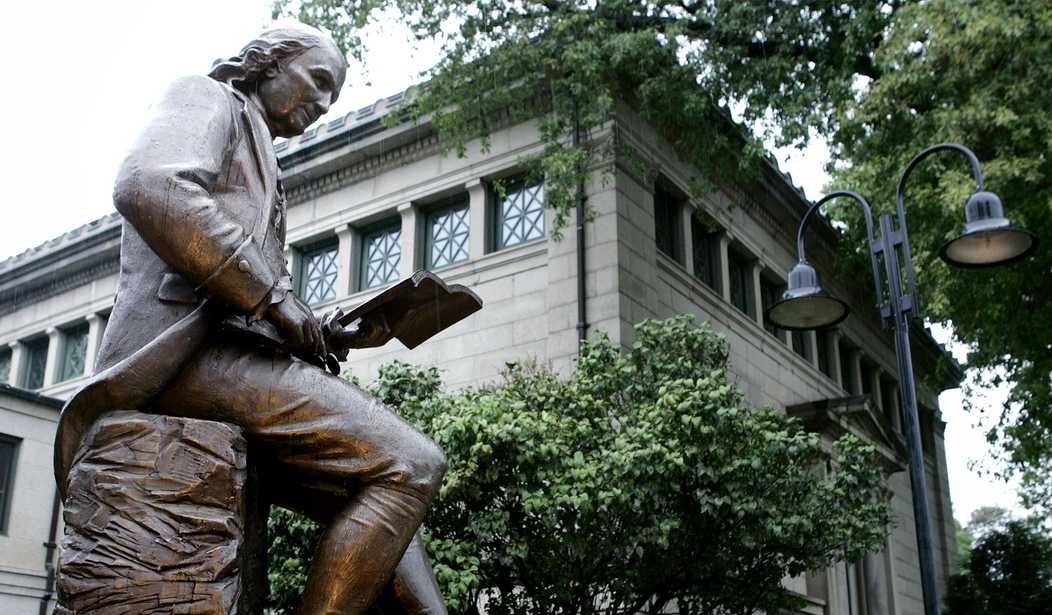Something bad is happening to public libraries in the United States. Visits to the community institutions fell a precipitous 56.6% between 2012 and 2022. This is long before the Department of Government Efficiency DOGE) targeted the Institute of Museum and Library Services (IMLS) for decapitation in 2025.
The irony is that print sales are up and bookstores are making a comeback. Across the nation, towns and cities have invested billions of dollars in shiny new public libraries equipped with all the high-tech, gee-whiz wizard gadgets a kid could hope for.
This is the second wave of library building in the United States, after Andrew Carnegie donated $40 million (in turn-of-the-20th-century dollars) to build almost 1,700 libraries in small towns and big cities across America.
Carnegie built the libraries, "but insisted that communities maintain them and provide the necessary funding for operations," according to the Carnegie Corporation of New York. Somewhere along the way, communities lost interest in maintaining the generous gift and decided to let Washington deal with it.
Even before Elon Musk and DOGE put a bullseye on IMLS, public libraries were in desperate trouble. The decline in visits wasn't due to fewer people reading. It was due to fewer people willing to put up with the fact that American public libraries had become de facto homeless shelters.
Homeless people have invaded many libraries across the country. Rather than deal with the problem firmly and reasonably, librarians have adopted the attitude that it doesn't matter why the homeless people are in the library; they should be welcome anyway.
Ryan Dowd, who once ran a homeless shelter in Aurora, Ill., is the author of The Librarian’s Guide to Homelessness: An Empathy-Driven Approach to Solving Problems, Preventing Conflict, and Serving Everyone.
If you think this guy believes in making libraries an extension of homeless shelters, you wouldn't be far off.
Dowd’s essential belief is that not only do the homeless have every right to spend their days in libraries but that librarians should view their needs as a critical part of the job. He believes librarians should be trained to dispense Narcan. One of his seminars is called “Jerks with Homes: How to Deal with Members of the Public Who Are Being Jerks About Homeless Folks.” His scripts for addressing problematic behaviors include examples like, “Hey, I don’t care if you urinate on the Harry Potter books, but the politicians have a no-urinating policy. Therefore, I have to ask you to stop.”
Dowd advocates for “inclusion,” even when it seems to come at the expense of the library’s environment. In Dowd’s book, some people who complain about the homeless are “everyday sadists.” As for the body odor that permeates so many public libraries, he writes that “There is a certain amount of odor that we can expect whenever we go out in public. Other people use odor as an excuse to vent their prejudices. Don’t let someone’s hypersensitivity or bias rule the day if the smell really isn’t that bad.”
Most librarians who might disagree with Dowd know better than to challenge the fanatical left orthodoxy among his colleagues. But one of those librarians, Steve Albrecht, a former San Diego cop who has conducted library security training for 25 years, is taking a different approach.
“We are losing control of a facility that has always been benevolent and peaceful for the community,” Albrecht wrote in The Free Press.
Recommended: Those 'Hard-Working, Law-Abiding' Illegals Who Steal Identities of Americans and Ruin Their Lives
Albrecht is worried that librarians aren't calling the police often enough or soon enough, leading to otherwise manageable problems that get out of control.
“People in the library world sometimes misunderstand that one of the primary functions of the police is to preserve the peace,” he wrote. “Police can do a lot of good by just telling someone they have to leave.”
Most librarians I spoke with were nervous about discussing these problems because they’ve seen the consequences of bucking the progressive tide that swept America’s libraries. Amanda Oliver, a former Washington, D.C. librarian, is the author of Overdue: Reckoning with the Public Library, a book that describes the problems that come with the homeless takeover of the library. She told me, “I was only able to write this book because I was no longer a librarian.”
Oliver still had to be careful. The book was published in 2022, and it explains that while hiring a police officer did reduce violent incidents and made some patrons feel safer, “The officers also did very little, if not nothing, to address the systemic issues in the neighborhood.”
I lived within walking distance of the village library when I was growing up. Of course, "walking distance" means something entirely different today than it did 50 years ago. Nevertheless, the older ladies who manned the desk were always willing to help kids find a book to read.
I daresay that library is not quite as friendly today as it was 50 years ago. This is understandable, given that no librarian or public library staffer has been trained as a social worker who would be able to deal with today's problems.
If a community can't or won't support a public library, the federal government shouldn't be pressed into service to fill the gap. Civic responsibility includes supporting public institutions like a library.
There's no reason for tax dollars going to fund a library in almost any town in the U.S.
Editor's Note: Radical leftist judges are doing everything they can to hamstring President Trump's agenda to make America great again.
Help us hold these corrupt judges accountable for their unconstitutional rulings. Join PJ Media VIP and use promo code FIGHT to get 60% off your membership.










